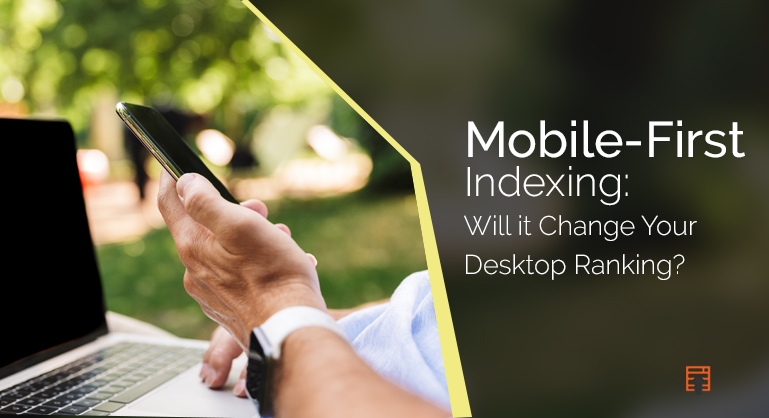What Everyone's Talking About
Check out our updates on Search Engine Optimisation, Social Media Marketing,
PPC Management Content Marketing, Facebook Advertising, e-mail Marketing etc.


Posted on: Oct 25, 2018 7 min read
The SEO world has been drastically changing over time as algorithms get smarter and more efficient in their efforts to show the user the most relevant and valuable content. This has made it difficult for the SEO strategists to come up with different ideas and methods in the attempt to rank on the first page of Google.
In 2018, mobile-first indexing has been on the mouth of a lot of people in the SEO world. A lot of people have tried to predict what would happen to the content ranking that we have all worked so hard to expose to as many people as possible online after the mobile-first indexing takes place.
Before we get into the discussing, we think it is worth mentioning that mobile-first indexing was introduced due to the mass adoption of mobile phones in recent years compared to desktop.
It is important for you not to confuse the two so here is a short explanation of what each one is and does.
Indexing in simple terms is the reading and storing of information that is on your website by the SEO indexing robot (GoogleBot). It basically is a library of information that it has indexed once you have uploaded it.
Ranking, on the other hand, is a process where Google, for example, evaluate the information from the index library and determine which web-pages from the internet match the requirements set by the Google algorithm. The web-pages that qualify will rank higher than the ones that do not.
It can be quite confusing; however, both are very different. The indexing is the foundation meaning that if a web page on your website is not indexed, it cannot be ranked.
We spoke above why Google have introduced mobile-first indexing. Mobile is simply more popular than desktop. All that Google have done is change the version of the web page content that they are indexing. In this case, they prefer mobile version over desktop.
It is unlikely that you will face any trouble as most sites use a responsive web design. Where the trouble comes is if certain content is not available on mobile but is on desktop. If the content that is missing on mobile, for example, contains vital ranking signals, then that page is likely to rank lower, ultimately affecting your SEO.
It is worth your time to make sure that you have all of your content both on mobile and desktop, this way, your SEO ranking will not be affected at all and you are unlikely to face any ranking penalties by the Google algorithm.
There is a lot of false information online; therefore, it is important that you pay close attention to what we are about to state here.
We have already mentioned that ranking and indexing are completely separate things that serve a different purpose to your overall SEO.
Just because Google have changed how they index the content online, that does not mean that they have changed how they rank the websites.
At the moment, Google’s organic ranking differ quite a lot based on whether the search query was initiated from a mobile device or a desktop. This is mainly due to some penalties that exist for mobile results like the mobile page speed ranking factor and intrusive interstitial penalty meaning that if your website loads slowly on mobile, the Google algorithm will penalise your SEO and rank you lower than you would have if your website was loading within the algorithm requirements.
